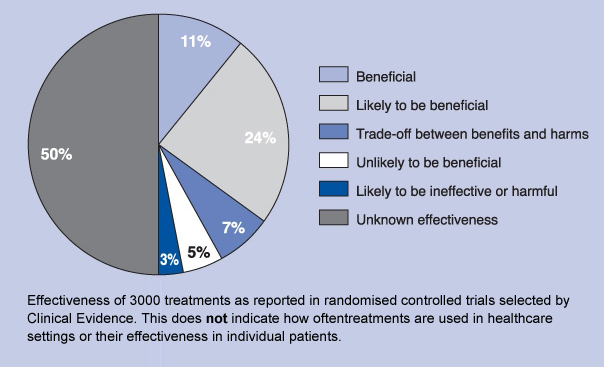Content Sections
You might think it works, but prove it!
The question of what works in medicine and healthcare is an increasingly confusing subject for many people. That is, except for those who have had positive experiences after taking a particular drug or food supplement, or engaging with a new diet and lifestyle programme.
The trouble is that such experiences are viewed as just anecdotal and don’t carry much muster either with doctors in white coats or regulators in government. These adjudicators, who have assumed a position in society in which they believe their opinions matter more than those of the rest of us, believe any positive experiences could be mere coincidence, or could be the result of other processes that weren’t controlled or accounted for in the person’s experience.
So, what if doctors or practitioners are able to amass tens, hundreds or even thousands of case reports showing positive effects that appear to be associated with interventions using specific natural therapies? Given that several clinics and laboratories working in the natural healthcare area have accumulated such data, we have been baffled at the lack of interest shown by governments when their attention is drawn to the existence of these case reports. Typically, they regard such data as being irrelevant, preferring to rely instead on human intervention studies, and, in particular, randomised controlled trials (RCTs), the gold standard used to verify efficacy of drugs before they get licensed. But as we revealed previously, RCTs don’t measure effectiveness in the real world.
Are licensed drugs safe and effective?
That in itself is a non sequitur. Let’s remind ourselves that many approved medical treatments, including pharmaceutical interventions, are not proven to be effective. The current count on BMJ Clinical Evidence indicates that just 11% of over 3000 treatments evaluated have been proven to be beneficial.

Source: Clinical Evidence [downloaded 6 June 2012]
Drugs can also expose users to considerable risks. But supposedly in an effort aimed at protecting our safety, government regulators evaluate both risks and benefits before approving a drug, and then the prescribing doctor weighs up the suitability of the product before prescribing it. A third safety filter is of course the patient information leaflet that comes along with the prescription — assuming the patient gets to read it. But despite all this, the fact remains that drugs are the most dangerous things we put in our mouths. As early as 1998, a meta-analysis (study of studies) published in the Journal of the American Medical Association revealed that around 2.2 million hospitalised patients in US hospitals suffered serious adverse drug reactions annually from ‘correctly prescribed’ drugs. Worse still, 106,000 patients die annually as a result of adverse reactions. The authors indicated this made fatal drug reactions from properly prescribed drugs the fourth to sixth leading cause of death in the USA. Nothing much has changed by all accounts.
The take-home message here is that licensed drugs are neither necessarily safe nor effective.
What about natural means of healthcare? Are they safe and effective?
The easy and inevitable answer to this question is that it’s not possible to generalise. But what is becoming increasingly clear is that the outcomes for those undertaking comprehensive, non-drug therapies based on diet and lifestyle modification yield results that the drug companies can only dream about. This is particularly the case when one looks at complex, chronic disorders associated with overweight and obesity, including type-2 diabetes and heart disease.
The diet and lifestyle modification programmes tend to include often profound dietary changes, specific exercise programmes, and may include use of concentrated nutrient and phytochemical supplements, individualised as a result of a deep understanding of whole system biology.
A good case in point was the wealth of supporting data revealed at last week’s Institute for Functional Medicine’s International Conference in Scottsdale (AZ, USA), a subject of an ANH-Intl feature.
But while we lack adequate and validated tools to measure these multi-faceted treatments and interventions, we only have patient and practitioner experience to go on. And that’s what keeps the wheels of natural healthcare turning more than ever — just as it has in previous decades and centuries. While people keep on having positive experiences and communicating these experiences to others, the cycle is perpetuated. And though some doctors and all government regulators we’ve ever had the good fortune to meet may continue to scoff at any attempt to report on these positive experiences, for many, it makes far more sense to rely on a friend or relative’s experience than trust what the drug companies claim.
ANH’s new science project
You may not be surprised to know that one of the major areas of scientific work that we’re engaged with is the development of a new scientific approach to objectively determining patient experience following the adoption of multi-faceted treatments, including specific dietary, lifestyle and exercise regimens.
It is just a matter of time, we believe, before governments will no longer be able to turn a blind eye. The scale and cost of failure of the pharmaceutical ‘silver bullet’ approach has become inescapable. Integrated approaches that actually work will become the natural successor to unilateral interventions involving patented pharmaceuticals that fail to include, for the vast majority, profound dietary or lifestyle modification.
Call to Action
- Seek advice from a qualified and experienced practitioner or nutritionist to help you to optimise dietary and lifestyle modifications.
- For those suffering chronic diseases, or considered to be at high risk of them, recognise that you will likely need not only to support internal metabolic and biochemical processes to allow the body to re-establish optimal equilibrium (homeostasis), you will also need to pay attention to your psychosocial, emotional and spiritual health, and engage in appropriate and regular physical activity.
- Physical activity should be a component in almost all healthcare strategies. Get advice on an exercise or activity programme appropriate for your circumstances from an experienced practitioner.
- Clinics (anywhere in the world) employing largely non-drug therapies and working with patients with cardiometabolic syndrome can get in touch with us to discuss possible participation in our new scientific research project. Individuals, companies and organisations wishing to support this key research, should contact us by email and include Science in the subject line, or telephone +44 (0)1306 646 600.








Comments
your voice counts
08 June 2012 at 1:45 am
Anecdotal evidence; how did this become a perjoretive experience?
Who is best able to judge the efficacy of a treatment better than the person experiencing it?
When did we give away (have stolen from us!) our own senses and judgement?
Codex would have us believe that properly composed and tested chemical combinations are safer and more effective than than treatments that have come down to us, and survived the acid test of consumer confidence over 100's or 1000's of years. What twaddle!
Just a study of Big Pharma's own statistics shows beyond doubt that most natural remedies do far less harm than their witches brew!
The bottom line is that we are each individually responsible for what we chose to put into our mouthes; it is not for the State or Big Business to treat us like children.
Your voice counts
We welcome your comments and are very interested in your point of view, but we ask that you keep them relevant to the article, that they be civil and without commercial links. All comments are moderated prior to being published. We reserve the right to edit or not publish comments that we consider abusive or offensive.
There is extra content here from a third party provider. You will be unable to see this content unless you agree to allow Content Cookies. Cookie Preferences